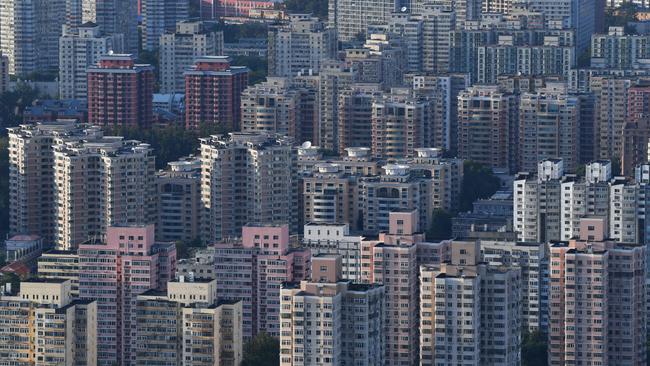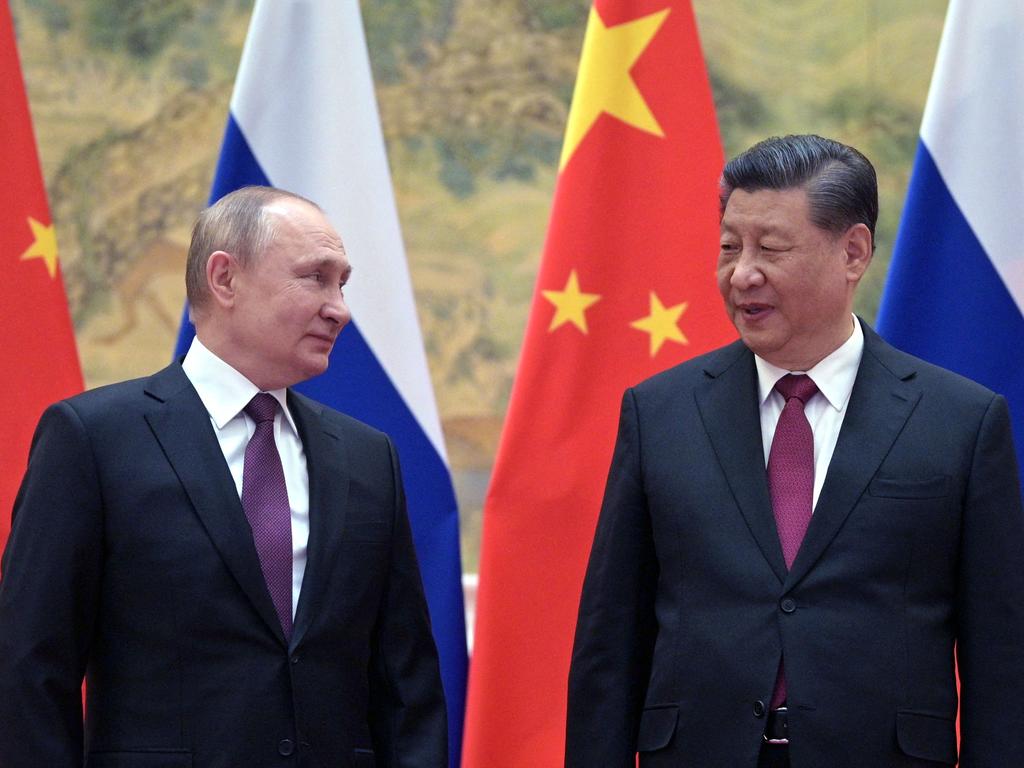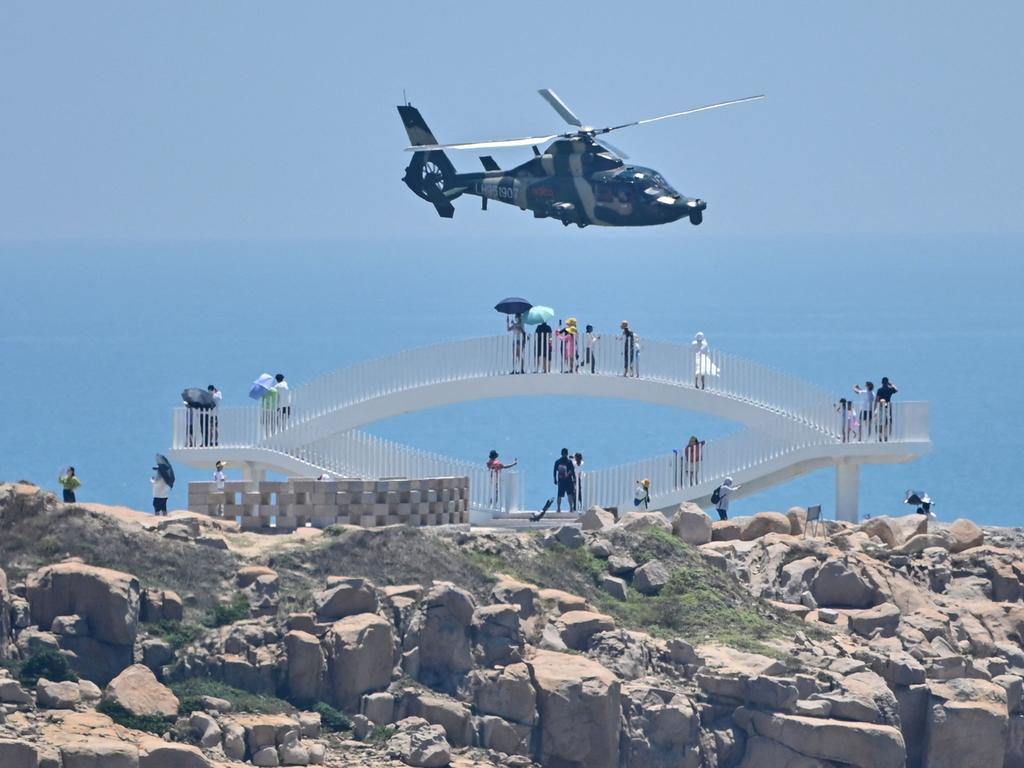Down and out in Xi Jinping’s China: the human toll of the world’s biggest property crisis
China is trapped in its worst property crisis. The human toll is dreadful - and the pressure on Beijing’s planners enormous.

Li Daqing is what people in China call a “fangnu”, or “mortgage slave”. Right now he and millions of indebted Chinese property owners are in a lot of trouble.
China, Australia’s top trading partner, is trapped in its worst property slump. August is the 12th straight month Chinese home sales have fallen as prices slump.
Hundreds of thousands have joined a mortgage boycott, an extraordinary act of defiance in Xi Jinping’s stability-obsessed people’s republic.
Steel production – which includes the key ingredient of iron ore, Australia’s most lucrative export to China – has slumped to the lowest levels since 2018.
And the human toll is dreadful.
Li, who asked to use a pseudonym, bought a one-bedroom apartment in Sanhe, a city of less than one million only an hour’s drive to President Xi’s leadership bunker in the former imperial grounds of Beijing.
The 32-year-old’s timing was terrible. He bought in 2017, right at the top of the market when apartments in Sanhe were being snapped up by young families desperate to get on to China’s fast-climbing property escalator.
Li paid more than 1.4 million yuan ($300,000) for the flat, which is less than 60sq m. He currently has it on the market for 800,000 yuan ($170,000) – almost half of what he paid only five years ago.
“Even at this price, nobody wants to buy it,“ he says.
Behind most defaulting properties is a miserable story. Li’s is a heartbreaker.
His small construction material shop went into bankruptcy at the start of the year, joining a huge wave of businesses that have gone under as the pandemic grinds on. He owes 900,000 yuan to his bank and another 420,000 yuan to other creditors he went to in desperation.
The financial strain has his marriage on the cusp of divorce.
The East is struggling
“The East is rising and the West is declining,” General Secretary Xi told his comrades last year ahead of the Communist Party’s 100th anniversary.
Senior figures in his government have recently dialled down the hubris as China’s economy is crunched by the property crisis, rising unemployment and Covid shutdowns.
Xi’s deputy, Premier Li Keqiang, last week made it clear that Beijing was under huge fiscal pressure, during a visit to Guangdong province, in China’s south.
In comments that quickly spread across Chinese social media, Li called on governors from Guangdong, Jiangsu, Zhejiang and Shandong – four provinces that deliver much of China’s revenue – to work harder to contribute to the central government.
Further down the chain of command, local Communist Party officials have joined the campaign to support the property sector, which accounts for about 25 per cent of China’s economy.

“I hope that today all comrades will take the lead in buying property,” urged Deng Bibo, a county party secretary in Hunan province in a speech that recently went viral online.“Buy one property, then buy a second one. If you purchased a second one already, then buy a third. Bought a third? Then buy your fourth,” he said.
That extraordinary plea came as international economists again slashed forecasts for China’s growth in 2022, following more bad data.
American investment bank Goldman Sachs cut its projection to 3 per cent from 3.3 per cent. Japan’s Nomura went even lower, revising its forecast to 2.8 per cent – almost half of Beijing’s 5.5 per cent growth target.
Analysts estimate that construction has been halted on about 13 million apartments in China during the past year.
The situation is being closely monitored by Australian iron ore giants BHP, Rio Tinto and Fortescue, who have made enormous profits as China’s property sector has boomed.
Beijing is engaged in a high-stakes struggle to maintain confidence in a system that has created tremendous wealth: funding middle-class lifestyles, international travel and overseas education, with Australia a favourite destination.
Every week seems to bring new challenges. A crowdsourcing group called “WeNeedHomes” exploded on to the Chinese internet last month. Hundreds of thousands of homebuyers in more than 100 cities across China said they would band together and refuse to repay loans on unfinished properties.
Writing on social media, they called it a plea for help from the government in their struggle against “greedy and dishonest developers”.
That remarkable act of rebellion came days after hundreds of depositors gathered in front of a branch of the People’s Bank of China in Henan, protesting the freezing of their life savings in rural Chinese banks. Videos of plain-clothed men dragging them away went viral until they were censored on the Chinese internet.
“This could not have come at a worse time,” said Michael Pettis, an expert on China’s economy at the Carnegie Endowment for International Peace, in a recent analysis of the ongoing crisis.

Medical supply boom
Bad weather and Xi’s “Covid zero” policy are compounding Beijing’s economic dilemma.
A heatwave in Sichuan, in China’s southwest, has crimped hydropower electricity generators – the province’s main source of power – leading to rolling blackouts and energy rationing for many of its 81 million people.
On China’s east coast, a sprinkling of Covid cases put the city of Yiwu into “silent management”, confining its 1.9 million people to their homes and disrupting the export and manufacturing hub.
A Covid cluster in Hainan island, a tropical resort province off China’s south coast, stranded 150,000 holiday-makers. It further sapped confidence in domestic travel for Chinese consumers, who are still not allowed to holiday internationally.
“Nobody dares … at least not for this year,” said one resident in Beijing.
Business is much better for Chinese medical suppliers. Beijing’s 21 million people need to get a test every three days to keep the QR codes on their phones green, allowing them to enter shops, parks and other public places. The tests are paid by the state – a mighty revenue stream for China’s Covid-test manufacturers.
That set up will continue at least until the Communist Party’s 20th party congress in November, the conclave at which Xi will again be anointed leader, with a precedent-breaking third, five-year-term.
The Covid restrictions may continue well after that.
China dream in tatters
Beijing has responded to its worst property crisis with a surge of infrastructure, a favourite policy response when its economy slows.
Spending on roads, hospitals, and water and communications pipelines has been growing at double-digit rates compared to last year, according to research by Goldman Sachs analysts. Beijing has been shy on details, but the total infrastructure package will reportedly run to more than $100 billion.
Much of that infrastructure will need iron ore, softening the impact of China’s property mess for Australia’s big producers. BHP chief executive Mike Henry last week said the Big Australian’s huge profits – a whopping $44.2bn last year – would continue to be underwritten by Chinese demand, even as its economy slows.
The outlook is much bleaker for many Chinese businesses.
Chen Jun runs a metal processing factory in an industrial park near Tianjin, a port city in China’s northeast where much of Australia’s iron ore is delivered.
Business has never been as bad in the factory’s 10-year history.
Chen, who also asked to use a pseudonym, has sacked half of his workforce during the pandemic.
The outlook is worrying, as the firm’s number of private-sector customers shrinks.
“More and more projects are contracted by the government,” he says.
“I’m not sure if the whole industry chain can be maintained only by the government.”
Chen tells his remaining 50 employees to be grateful they still have jobs. Most of his rivals have been driven to bankruptcy.
“We’re the lucky ones,” he says.
Li Daqing, the “mortgage slave”, is less fortunate. Unable to service his mortgage, his business in bankruptcy and his marriage close to divorce, Li’s China dream is in tatters. He plans to move in with his parents.
“I can only go back to my hometown in northwest China and find a job, and continue to pay back my loans,” he says.






To join the conversation, please log in. Don't have an account? Register
Join the conversation, you are commenting as Logout